Working in Accordance With Sustainable Development Goals
GMCS has encapsulated the core ideologies set in the UN’s 17 Sustainable Development Goals (UN SDGs). Below we have listed some of the various projects undertaken by GMCS that highlight its contribution towards the achievement of the UN SDGs.
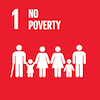
Poverty is more than the lack of income and resources to ensure a sustainable livelihood. Its manifestations include hunger and malnutrition, limited access to education and other basic services. By empowering the private sector GMCS encourages growth of local businesses and job markets, while our cooperation with the public sector stimulates the growth of access to basic services and resources resulting in an independent and inclusive growth in developing countries and communities.
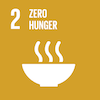
One in nine people in the world are malnourished. To ensure food security, major steps have to be taken rethinking how we grow, share and consume our food. GMCS is working closely with start-ups which specialize in modern agricultural solutions:
■ Seed funding for VitEco, which develops and implements a combination of environmentally sound agricultural technologies from permaculture to aquaponics.
■ Advising a UAE based start-up, which provides technological solutions for berries and vegetables production in extreme climatic conditions, revolutionising the quality of nutrition available in remote and isolated parts of the world.

■ World Bank Social Protection Implementation Project (USD 28 million);
■ World Bank Medical Equipment Project (USD 270 million) HIV/TB Prevention Program;
■ Russian Healthcare Foundation (USD 150 million);
■ World Bank Standards Development Project (USD 70 million);
■ World Bank Support for the Municipal Housing Reform (USD 70 million).

Water scarcity, poor water quality and inadequate sanitation negatively impact food security, livelihood choices and educational opportunities for poor families across the world. GMCS contributes to increasing access and quality of water, by consulting and managing the development of civic projects in the field of wastewater treatment, rehabilitation and management. Such projects include:
■ Wastewater Project in Kobuleti, Georgia which aims at modernizing the sewage infrastructure and thus reducing sea pollution and positively impacting public health;
■ Water Supply and Wastewater Rehabilitation Project in Osh, Kyrgyzstan which will enhance the institutional capacity of the Osh Water Company by enabling and strengthening the development of the city’s environmental health and safety management systems;
■ Water Rehabilitation Project in Khorog, Tajikistan which is being undertaken as part of the country’s water sector reconstruction, and aims not only at improving the water supply, quality and wastewater infrastructure in the city, but also reducing the water loss and improving collection of payments for water rates, which in turn will improve the socio-economic and environmental situations in the region as a whole.
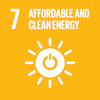
Sustainable energy is our opportunity to transform lives, economies, and even our planet. GMCS provides Project Finance Advisory services to private developers of electric generation facilities from renewables, as well as public sector consulting on design and implementation of regulatory measures required to boost private investment.
■ Development and Construction of a 300MWT Wind Park in Kalmykia, Russia (over EUR 300 million);
■ Development of a 50 MW PV facility in Kazakhstan.

As part of promoting inclusive and sustainable industrialization and trade, GMCS Group AG provides project finance advisory services to the Dubai-based PBP Capital, which together with DP World develop a premium business park at Khorgos Special Economic Zone, which in turn will increase the regions competencies in the field of global logistics and attraction of foreign investment.

As cities grow, so do their challenges. Modernizing municipal infrastructure can improve resource use, increase access to transportation and other public services and reduce pollution and poverty in cities and communities. GMCS has worked alongside international donor agencies and IFIs to help municipalities improve their water and sanitation, transport and social infrastructure for over 20 years. In this field, we provide a wide range of services to the public sector, as well as private investors in Public-Private Partnerships. Such projects include:
■ Development of Public Transport in Tajikistan: Dushanbe, giving the City an effective tool for managing the public transport sector. (USD 10 million);
■ Urban Transport Development Project in Moscow, supported by the World Bank aiming at improving institutional capacity in planning, implementing, operating, and enforcing traffic management measures of the city, (USD 150 million);
■ Public Transport Development Project in Bishkek, Kyrgyzstan focusing on priority investments in Bishkek trolleybus infrastructure;
■ Metro Construction Completion in Dnepropetrovsk, Ukraine (EUR 152 million);
■ Tram Project implementation support in Pavlodar, Kazakhstan (EUR 10 million);
■ LED Street Lighting Project in Almaty, Kazakhstan (EUR 29.2 million).
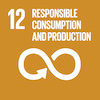
Recycling is a vital part of ensuring a sustainable consumptions and productions pattern. GMCS is involved in the modernisation and improvement of Municipal Solid Waste (MSW) treatment and management systems. Such projects include:
■ MSW management system in Bishkek, Kyrgyzstan, in which GMCS occupies a consultancy position. Besides the socio-economic and environmental benefits, the project will educate students and their parents about the advantages of recycling waste;
■ MSW management system in Yerevan, Armenia, which will drastically reduce the city’s environmental footprint.
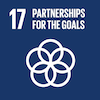
GMCS’s contributions towards the UN SDGs are numerous, but our biggest resource is our network. we stand at the intersection between governments, private sector and civil society, We connect corporate, institutional and private clients with possible investors, funds and financial institutions helping them to secure financing for relevant projects. We bring technological solutions and experienced professionals to communities where they are needed promoting cooperation between actors striving towards successful and sustainable development.

